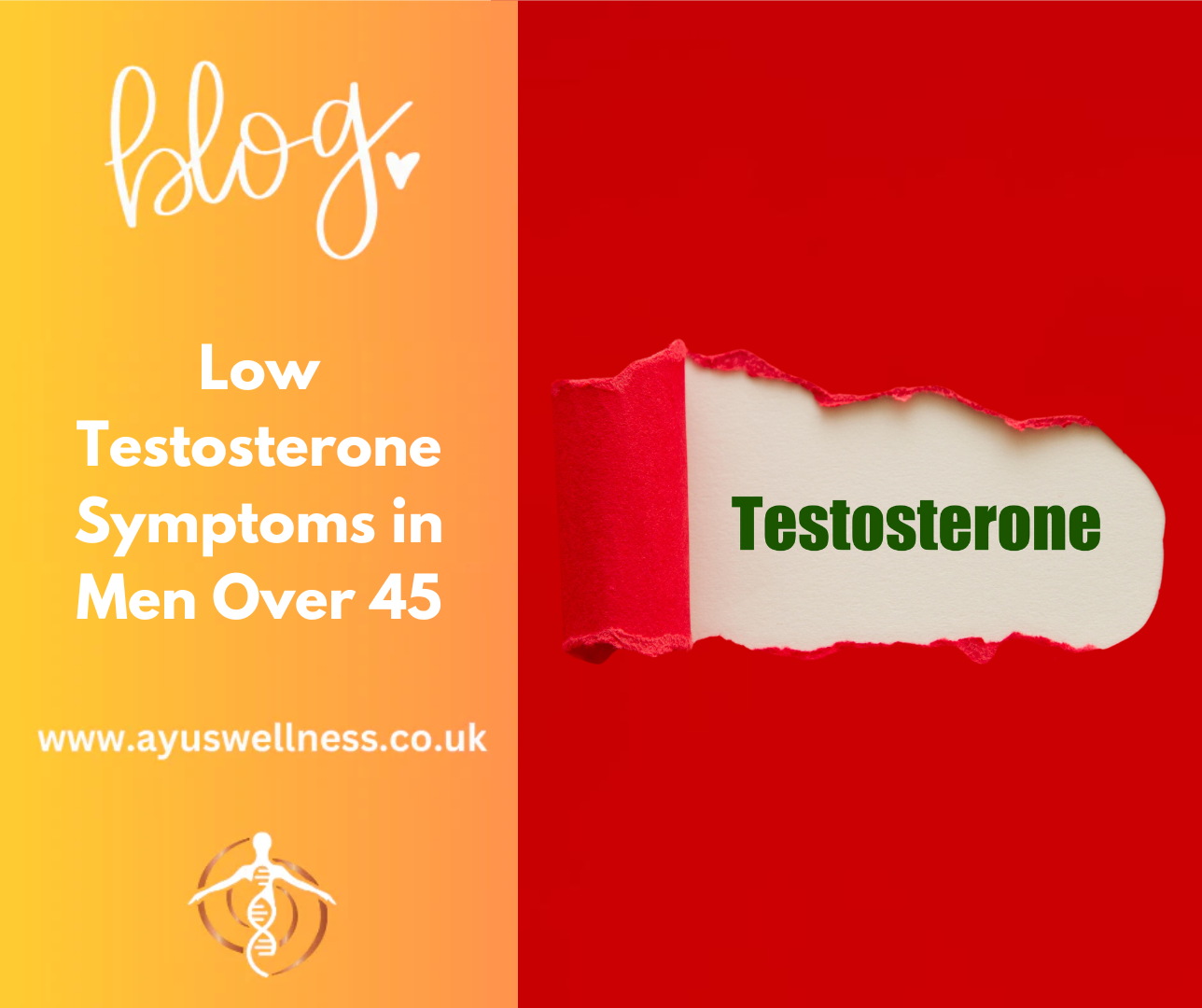
For men over the age of 45, symptoms such as fatigue, low libido, and weight gain may stem from a single underlying issue: low testosterone. Affecting nearly 40% of men in this age group, low testosterone is much more than a hormonal shift; it can disrupt overall health and contribute to conditions like metabolic syndrome and cardiovascular disease. This article provides an in-depth look at low testosterone's effects, risks, and solutions.
What is Low Testosterone?
Testosterone is a hormone essential for maintaining muscle mass, energy levels, mood stability, and even heart health. Defined by the American Urology Association as levels below 350 ng/dL, low testosterone (often called “low T”) has become an increasingly common concern. While some experts set a lower threshold at 250 ng/dL, the impact of testosterone levels varies across individuals.
When testosterone levels drop below these points, men may experience symptoms ranging from fatigue and weakness to hair loss and mood swings. As testosterone dips, it can influence weight gain, insulin resistance, and even Type 2 diabetes. Men with these symptoms should consider a testosterone test, as early identification can be the first step toward improved health.
The Cycle of Testosterone, Obesity, and Diabetes
Testosterone and obesity share a close, cyclical relationship that can be tough to break. Excess weight, especially around the abdomen, can lead to increased estrogen production and inflammation, both of which lower testosterone levels. Additionally, excess body fat contributes to leptin resistance, a condition that further disrupts hormone balance.
Low testosterone and obesity combined increase the risk of insulin resistance, which often precedes Type 2 diabetes. By addressing low testosterone, many men can improve their metabolic health, which may help them lose excess weight and regain energy. This cycle, when broken, can have a significant impact on overall health.
The Mortality Risks Linked to Low Testosterone
Studies have shown that testosterone levels below 213 ng/dL correlate with an increased risk of mortality from various causes. Low testosterone is especially risky for cardiovascular health; levels under 153 ng/dL are associated with heightened cardiovascular disease risk. Beyond testosterone, factors like high luteinizing hormone (LH) levels and low estradiol further amplify the risk of serious health issues.
Maintaining balanced hormone levels can contribute to longevity and a reduced risk of many diseases, making it crucial for men to monitor and manage their hormone health as they age.
Andropause and Cardiovascular Health in Men Over 40
After age 40, testosterone levels decline at a rate of about 1% each year. Often referred to as ‘andropause,’ this gradual drop in testosterone does not cause the sudden changes seen in female menopause but can still lead to weight gain, reduced muscle mass, and increased risk for cardiovascular disease.
Men with low testosterone have a greater likelihood of developing heart conditions, including congestive heart failure. Healthy testosterone levels support cardiovascular health by reducing visceral fat, enhancing glycemic control, and contributing to the elasticity of blood vessels. Through proactive management, men can reduce cardiovascular risks and improve their quality of life as they age.
Natural Approaches to Boost Testosterone
While testosterone replacement therapy (TRT) can help some men, not everyone is suited to supplements. Fortunately, there are natural methods that can support healthy testosterone levels. One effective approach is KAATSU training, a form of exercise involving blood flow restriction that has been shown to stimulate growth hormone and testosterone production.
Avoiding endocrine-disrupting chemicals like BPA and phthalates—often found in plastics and personal care products—can also help, as these substances may interfere with hormone balance. Regular exposure to sunlight, which boosts vitamin D levels, is another effective way to promote natural testosterone production.
The Relationship Between Testosterone and Heart Health
Concerns about testosterone replacement therapy (TRT) and heart risks have been widely debated. However, recent research, including a meta-analysis of 30 clinical trials, indicates no significant increase in heart risk for men on TRT compared to those on a placebo. For men with diagnosed low testosterone, TRT can be a beneficial, safe treatment when guided by a healthcare professional.
Despite the safety of TRT for many men, it is not for everyone. A personalised approach with a healthcare provider can help determine whether TRT or other interventions are the most appropriate option.
How Andropause Affects Body Composition
As testosterone levels decrease with age, many men notice shifts in their body composition, such as increased abdominal fat and reduced muscle mass. Testosterone is crucial in maintaining a lean physique, helping to regulate fat distribution and muscle growth.
Addressing low testosterone can reverse some of these changes. Testosterone helps activate androgen receptors in muscle cells, promoting muscle development and supporting fat metabolism. With balanced testosterone levels, many men find it easier to regain lean muscle, reduce body fat, and maintain a healthier weight.
Taking Action to Support Testosterone Levels
Low testosterone influences far more than energy and libido. It has widespread effects on mental and physical health, from body composition to metabolic function. If you’re experiencing symptoms associated with low testosterone, getting tested is an important first step. Working with a healthcare provider to support balanced hormone levels can make a significant difference in maintaining health and vitality as you age.
By adopting strategies like regular exercise, a balanced diet, and mindful lifestyle changes, men can often improve their testosterone levels naturally. Proactive health choices not only boost testosterone but also reduce the risk of serious conditions linked to low hormone levels.
FAQs
What are common symptoms of low testosterone in men over 45?
Common symptoms include fatigue, low libido, increased body fat, reduced muscle mass, and mood changes. These signs may signal a need for hormone testing.
Is low testosterone dangerous?
Yes, low testosterone is linked to increased risks of conditions like Type 2 diabetes, metabolic syndrome, and cardiovascular disease. It can also impact mental health and quality of life.
Can testosterone replacement therapy increase heart risks?
Studies indicate that TRT does not significantly increase heart risks in men with clinically low testosterone. However, TRT should be considered on an individual basis with healthcare guidance.
Are there natural ways to boost testosterone?
Yes, regular exercise, reducing exposure to endocrine disruptors, and getting adequate sunlight can support natural testosterone levels. Diet and stress management also play a role.
How does testosterone impact body composition?
Testosterone helps regulate fat distribution and muscle growth. Low testosterone often leads to increased abdominal fat and reduced muscle mass, impacting metabolic health.
Does low testosterone affect longevity?
Low testosterone levels are associated with increased all-cause mortality and specific risks for cardiovascular disease. Balanced hormone levels support longevity and overall well-being.



